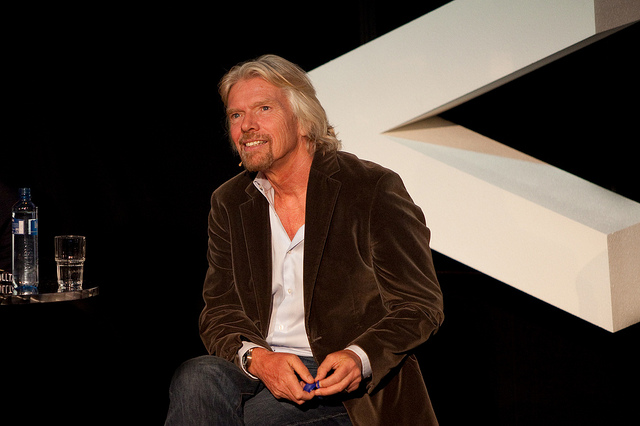March 2013 | People
 photo by Gulltaggen
photo by Gulltaggen
Life is an exciting thing and difficult times provide great opportunities for business development. One of the most daring businessmen in the world and founder of the Virgin Group, the British Richard Branson talked with the World Economic Journal about helping start-up companies and space exploration.
How difficult is it, in your opinion, to develop business in today’s financial conditions in the world?
It depends really on what the circumstances are. For start-up business that has sufficient funding and a really great idea, there is no bad time to start. Funding is harder to come by at the moment, particularly with banks less willing to lend to small businesses, but tough times can provide great opportunities as big companies are preoccupied with their own problems; premises are cheaper and there is more talent on the market to hire. I have worked through a couple of previous recessions – in the ‘70s and late ‘80s – and in each case I learnt that there are business opportunities in all the gloom and doom.
What branches and why you consider today the most attractive to investments?
I think being an entrepreneur you have fun when you see your ideas and businesses grow and become successful. I’ve had great fun turning quite a lot of different industries on their head and making sure those industries will never be the same again, to the benefit of the consumer.
I am constantly looking for new challenges and still very much love learning about everything there is to learn about life. Whether it is how the airline business works, how the music industry has changed or how to build a commercial space craft, I just find life absolutely fascinating.
One of your “fresh” investments – in the “Square” company about a year ago. After that capitalization of the company grew up to 2 billion dollars. What is the reason of such growth, in your opinion?
Square is an incredible technology that inspires and empowers everyone to be an entrepreneur. I took interest in Square’s rapid growth and novel technology, in particular its free hardware that allows anyone to accept credit card payments anywhere, anytime. Despite having launched only a year ago, Square has shipped over 800,000 card readers to merchants and is currently processing over $2 billion in payments annually. While currently focused on its US growth, the company plans to offer Square in international markets in 2012.
What markets, your mobile business of Virgin Mobile, is interested in?
We are always looking at launching new businesses and expanding in new territories and it’s the job of our Investment team to analyse new areas. Our Mobile business has recently expanded to Latin America and Eastern Europe with the launch of Virgin Mobile Chile last year and Virgin Mobile Poland this month.
How does the development of production of usual and cellulose ethanol advance? Virgin Group planned to allocate several hundred million dollars for this direction within the next years.
I pledged for us to invest the profits from our transport businesses into the development of more sustainable fuels. Virgin Green Fund’s first round made some strong investments into companies like Gevo, who produce isobutanol from more sustainably-sourced biomass. Ethanol was an interesting first generation biofuel, but it has many limitations. Through companies like Gevo and others we are engaging with renewable fuel producers that are more likely to produce fuel suitable for aviation and other markets.
At present time you, together with the co-founder of Microsoft Paul Allen work on the Virgin Galactic project. Why have you decided to concentrate on this direction?
Virgin Galactic sub-orbital space launch represents just a first step in space tourism and much more will need to be done in the future if we are to reap the greater benefits that space offers. Galactic will not simply be a Tourism vehicle. I believe that it is an important development for the future of manned space flight, the science of space and the planet, and crucial in capturing peoples imagination and developing understanding of our planet’s relationship within our solar system for many thousands of people and through their eyes many millions more.
Who will become the first clients?
We have more than 530 customers which is pretty impressive seeing as to date fewer than 500 people have experienced space travel. One of the first customers to sign up was Stephen Hawkings and we now also have the likes of future astronaut customer such as Ashton Kutcher, Russell Brand, Shervin Pishevar, Victoria Principal, James Lovelock and Bryan Singer.
How is it possible to join a queue?
To join the queue you just need to contact the Virgin Galactic team at www.virgingalactic.com/
Text: Anastasia Yakovleva, Marina Arnautova

